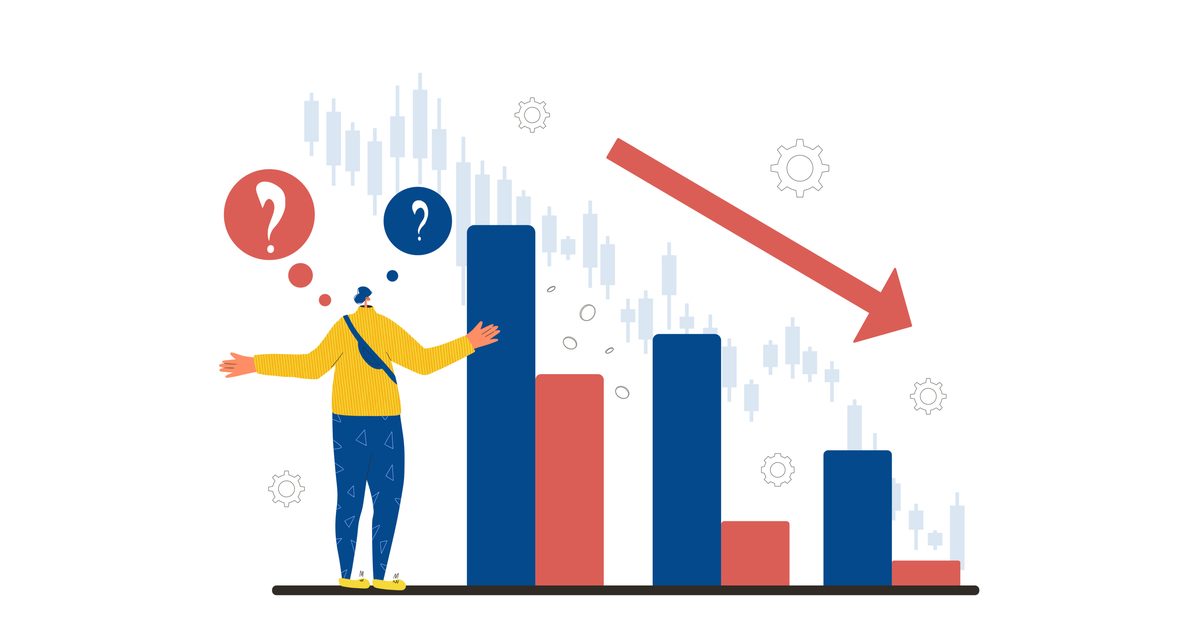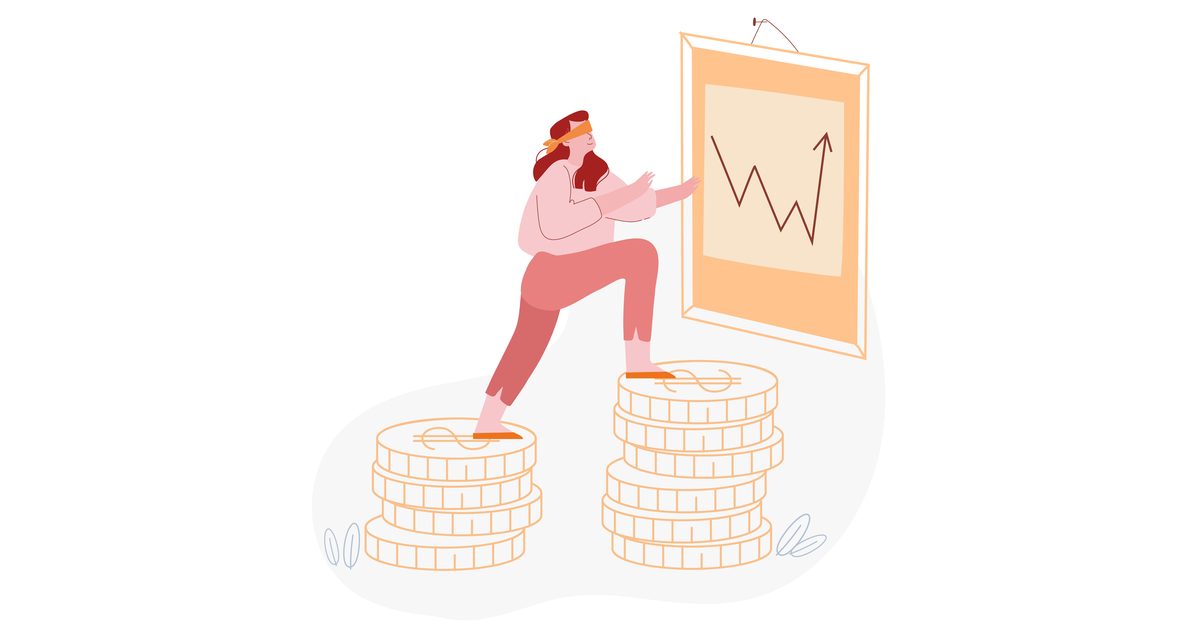What Psychological Traps Do Beginner Traders Face? What Stands in Their Way to Success?

9 minutes for reading
Let us get started with the simplest questions: how did you find yourself in Forex? What was the reason for you to get interested in such a thing? One of the most popular ways of attracting an untutored searcher of new money sources must be to promise them a quick and easy-to-make profit. Indeed, the Internet is full of ads assuring you that making money in Forex is nice and easy; however, it is not.
Of course, one has to get up really early in the morning to fool such serious-minded and clear-headed people like us: we know that there are no free lunches. However, the more you try to ignore the ads, the more curious you become: how do people make money in Forex? This is the starting point where a beginner makes their first step from simple to complicated techniques, from mere curiosity to engrossing passion. Today, the amount of free information about trading and earning is virtually unlimited: read, study, and try. Imagine how delighted you will be to make your first profit on a demo account!
With your cheeks flaming, you start calculating what profit you could have made on a real account, and how much it would amount to monthly or annually. You make a wide gesture and deposit your money on a real account. Alas, after your first success or even without it you lose your money. It damps your ardor but you realize that there must be a reason for your losses and recall seeing an ad somewhere promising to teach you how to trade in a fortnight. You rush there.
A new step in your studies begins: you learn about indicators, patterns, trends, support and resistance, trading systems, money management, psychology, and other useful things and novelties. Simultaneously, your teachers tell you that in fact, things are simple. Indeed, you succeed again: your demo account is growing, and what you have learned really works. No need to repeat that you deposit your money on a real account – and return to where you got started…
Why do beginners drain their deposits?

There are several answers to the question.
Reason one
Your learning is just a part of your way, the necessary minimum that you need to start making money. The market moves either up or down (for now, we will neglect the times of consolidation). Hence, the first half of beginners will end up with a profit while the second half – with a loss. This first half will immediately open a real account and lose the deposit. Meanwhile, the second half will go on learning, being sure that their effort was not enough – however, they will also open a real account later, explaining their previous losses by a lack of knowledge and experience.
Reason two
All learning, especially in a dealing center, is a kind of hypnosis. As soon as you read something, you immediately start looking for confirmation of the information on charts – and, curiously, you find them. On the other hand, your teachers leave out the cases when you could suffer losses in the same circumstances. When a beginner opens the terminal and tries trading in accordance with the information studied, one of the two things happen: they either make a profit and fill with enthusiasm – or suffer a loss and start thinking something like: “My gosh, I should not have entered here!” or “On the longer timeframe it was okay but on the smaller one I entered counter the trend!” or “I did it right except for the Stop Loss, it was too short!” or “Why on earth did I wait? I should have closed it with a profit!” or something else of the kind. There might be thousands of explanations, however, not many will admit that the strategy was erratic from the start.
Reason three
Theoretically, the probability of a profit and loss is 50/50 – of course, with all the spreads and commission fees, it is lower. Opening a trade, the trader is already suffering a loss until they cover the spread. Nonetheless, most beginners do lose their first deposit. Try to remember how many traders you know who make real money on trading. I suppose that among your acquaintances those who make a good profit are much fewer than those who lose regularly. Hence, nothing is surprising in a beginner losing their first deposit. The reasons are mostly psychological.
Typical mistakes of trading on a real accounted

The problem with the psychology of trading appears when the beginner opens their first trade on a real account. Opening the very first order, in general, is a very important step, and the strategy of trading often changes right after it. Let us see why it happens.
Mistakes with an open profitable trade
If the first trade is profitable, the trader starts doubting and gets tempted by the following desires:
- to close the trade as quickly as possible: when the first trade closes with a profit, it is much easier to open the second one. You may explain your actions to yourself by the new indicator showing a reversal or advice of some other trader – the essence remains the same.
- To transfer the trade to the breakeven. It is okay if the trading system allows it – but what if you are acting at your own responsibility? You may be hurrying too much so that the trade will close without a profit.
- To close the order that is profitable but the profit has just shrunk – in fear of a reversal; however, this might be a normal correction, everyone knows that the market cannot go in one direction all the time, so pullbacks happen.
- To place the Take Profit as far as possible in a greedy attempt to make a larger profit.
Add any other desires to taste, however, the idea is that the trader breaks the rules of the trading system under the influence of their psychology.
Mistakes with an open losing trade
If the first trade is losing, the trader may experience the following impulses:
- To close the trade lest the loss grows, no matter that the SL remains in place, and the trader has calculated possible losses and risks. It is psychologically hard and even scary to end up with a loss on your dear own real account.
- If the price is approaching the SL – move the latter farther, as in such cases it always seems that the price is on the verge of a reversal.
- If the order first became losing but the price did not reach the SL, reversed and returned o the opening level – to close the order as soon as possible. This might be interpreted as some sort of a sign given by the market for the trader to close without a loss.
- To add up to the losing position, even with a larger volume to close without losses or with a profit when the price starts to correct. By the way, this case may have other options: if the second trade is profitable, you may close it and leave the losing one at least until the breakeven.
How to follow the rules of trading?

Again, all the actions enumerated above are violations of previously set trading rules. But what is next?
Option one
Closing the first order with a profit, the trader goes on as follows:
- Decreases the lot size, often fearing that if the second order turns out losing, they might lose a part of the profit.
- Enters the market right after the first order closes; they are inspired by the first profit and act not by the strategy but expecting the price to continue the previous movement.
- Increases the lot size, judging by the first result that trading on a real account is no harder than on a demo one, and it even brings money.
- Stops trading altogether. This is, again, incorrect and counter the trading system because it suggests entering the market when there is a corresponding signal while skipping signals means breaking the rules of the system, which might, in the end, distort the final result.
Option two
The first order is closed with a loss. The trader may act as follows:
- Increase the lot size, trying to play back the losses.
- Decrease the lot size in the fear of a yet bigger loss and attempting to restore the deposit, at least.
- Open a new position right after the first one closes. Meanwhile, there is no time for weighted market decisions: the trader is led by the passion to never end trading without a profit as they do not want to leave with a loss.
Anyway, all these actions may only increase the losses instead of restoring the deposit. Acting emotionally under the influence of erratic psychology, the trader only aggravates the existing problems.
Summary
If the first order is in the market, and the trader holds themselves back from violating the rules of the trading strategy, they will do it again and again. The trading system will acquire new rules: close while you see a profit, or transfer the order to the breakeven, or assess the market from the point of another strategy, or leave the traders’ chat as the colleagues spoil the trade by their advice, etc. Working on a demo account, the trader has already created the rules based on the learning materials and has made sure that the system is operating well.
Acting against the rules of the trading system, the trader does not come to the right conclusions. If they have violated the system but ended up with a profit, they interpret it as a positive experience instead of mere luck.
Indeed, this could be the only right decision, but if so, the system that the trader used was untried. And an untried system must not be used on a real account without tests on a demo one. Meanwhile, if the trader ends up with a loss, they just start scolding themselves.
If you have ever been a beginner or you are at the start of your trader career right now, the topic of psychological readiness for trading must be interesting to you. If you have something to share with other beginners, join in the conversation!







